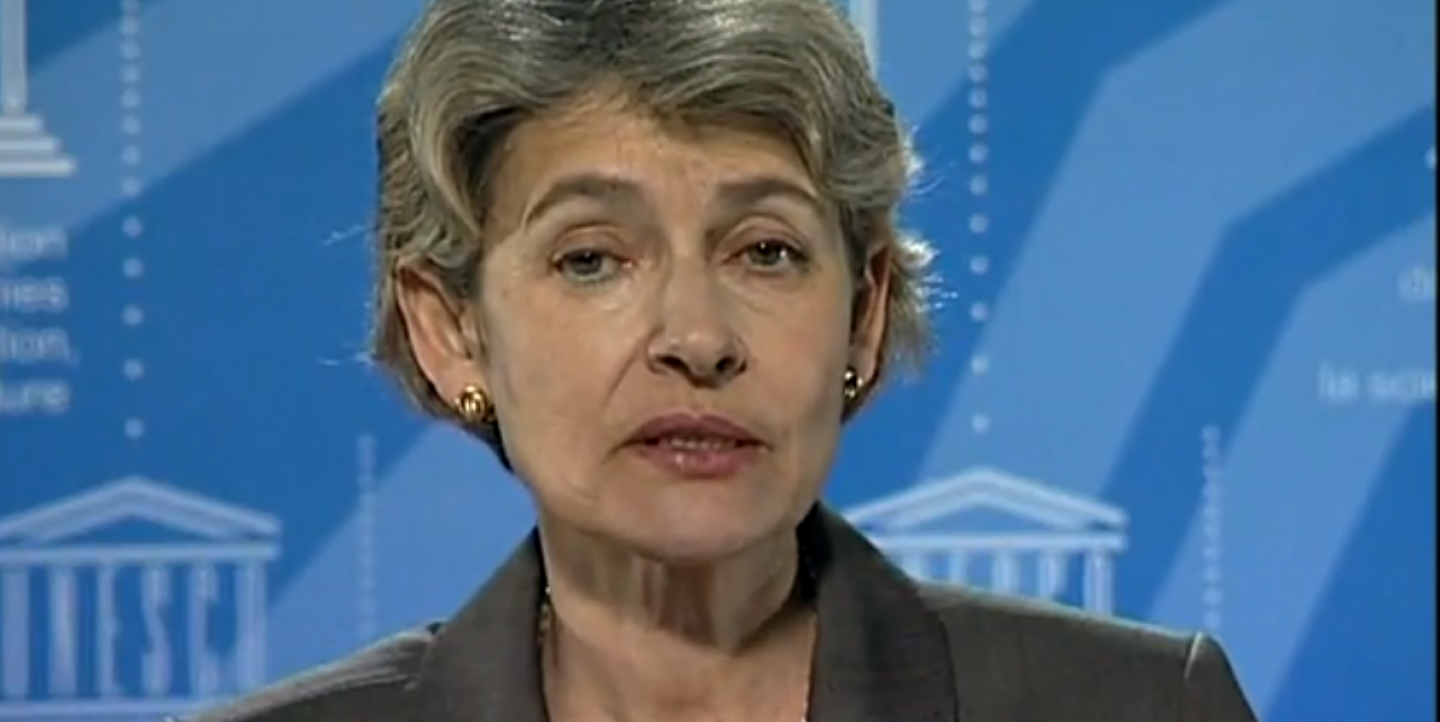The uprisings in Tunisia and Egypt were about freedom and dignity, said UNESCO's Director-General Irina Bokova Thursday during a teleconference previewing the 20th celebration of World Press Freedom Day next week in Washington, D.C.
She “…sent a special mission to Egypt with experts to help with the media legislation, [to implement good standards] in their constitution and laws," Bokova said. “We have some ideas on training journalists in this changing political environment.”
During a 40-minute teleconference, Bokova spoke about the hundreds of journalists killed over the last decade, many of them because they dared uncover corruption. She said citizen journalists will not replace professional journalists and talked of the changes in education and knowledge being brought about by technology.
Bokova also re-affirmed UNESCO’s commitment to freedom of the press worldwide and expressed concern about the situation in Syria.
“Over the last decade, more than 500 journalists lost their lives in the pursuit of their profession, and 60 killings were reported worldwide in 2010 alone,” according to a statement released in a joint message by UN Secretary-General Ban Ki-moon, UN High Commissioner for Human Rights Navi Pillay, and Bokova.
“UNESCO stands by every journalist … Most of them do not lose their lives in combat, but when they uncover corruption,” Bokova said.
World Press Freedom Day will focus on new media, new frontiers and barriers, as well as press freedom. It will recognize the important role new media is playing in press freedom and will stress the importance of making it available to everyone in the world.
Bokova expressed confidence that newly available tools are changing the media landscape for the better.
She reminded listeners that World Press Freedom Day “was born 20 years ago in the vision of a group of journalists gathered in Windhoek (Namibia).” She added that UNESCO honored journalists who dedicate their lives to defending freedom of expression by introducing the Guillermo Cano World Press Freedom Prize in 1997. The prize was awarded this year to Iranian journalist Ahmad Zeidabadi, who is still in Jail.
When a Christian Science Monitor reporter asked Bokova about the role of professional journalists in a world populated by Twitter, Facebook and cell phones (crowd-sourcing), domains where citizen journalism is blooming, she answered that citizen journalism is indeed changing the media. But she said UNESCO is still training journalists in developing countries to become more professional.
“I do not believe that citizen journalism will replace professional journalism,” she said.
IJNet asked Bokova how UNESCO can pressure governments to release journalists who are still imprisoned?
“We make appeals and talk to governments,” she said. “We work on the quiet diplomacy. Sometimes we are successful with the release of some journalists … You may stop a voice … but I believe we are now witnessing a different atmosphere. UNESCO has now more than ever put freedom of the press in the forefront.”
Asked by a reporter from Asharq Al-Awsat, a pan-Arab newspaper, whether she had a specific message for President Bashar Assad of Syria, she said: “I am very worried about what is happening in Syria and the violence used against protesters. I deplore deeply the loss of lives, and I cannot accept any excuse of political consideration.”
Answering another question by the same reporter about the responsibility of bloggers who publish rumors that exacerbate some conflicts, Bokova stressed that drawing the line between freedom of expression and responsibility is important. She said “the role of media is to respect and to help in conflict prevention and not invest in xenophobia against other people.”
However, she added that irresponsible uses should not prevent the promotion of free expression around the world.
To listen to the full audio telepresser with Bokova click here.
You can read more of IJNet's ongoing coverage and profile series leading up to the events here.
The United Nations Education, Scientific, and Cultural Organization (UNESCO) organizes World Press Freedom Day commemorations to celebrate the fundamental principles of press freedom; to evaluate press freedom; to defend the media from attacks on their independence and to pay tribute to journalists who have lost their lives in the line of duty. For complete information on the 2011 World Press Freedom Day global conference in Washington DC, see www.wpfd2011.org (in English).

